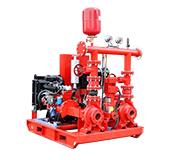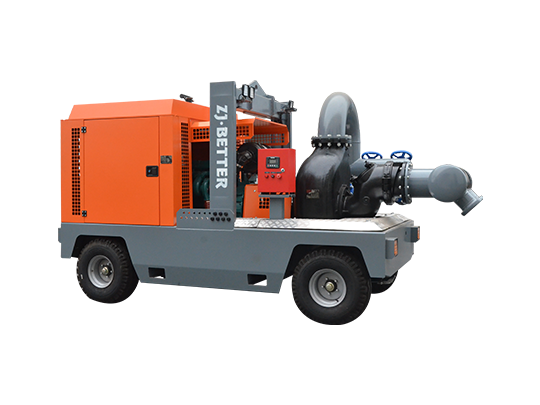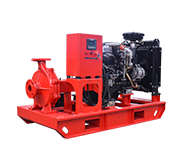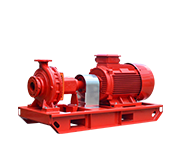
The first main cause of the blue smoke generation of the diesel engine fire pump is: the air filter is blocked, the intake air is not smooth, or the oil level in the oil basin is too high, so that the amount of gas entering the cylinder is reduced, and the normal proportion of the fuel mixture gas is changed, resulting in oil. More gas and less fuel burns incompletely, causing blue smoke.
The second main reason for the blue smoke generation of diesel engine fire pump is that the lubricating oil in the oil pan is too much, and the lubricating oil is easy to break into the combustion chamber during the operation of the diesel engine.
The third main reason for the blue smoke generation of diesel engine fire pump is: long-term low load, generally the rated power is less than 40%, the gap between the piston and the cylinder sleeve is too large, so that the lubricating oil in the oil sump is easy to break into the combustion chamber, The fuel mixture in the cylinder mixes, changing the normal proportion of the mixed gas, and the combustion is incomplete, causing the exhaust to emit blue smoke.
The fourth main reason for the blue smoke generation of diesel engine fire pump is four: the piston ring is stuck or worn too much, and the elasticity is insufficient. When the piston ring is chamfered in the installation direction, the oil enters the combustion chamber, and the lubricating oil burns to generate blue water vapor smoke. .
The fifth main reason for the blue smoke generation of diesel engine fire pump is five: the cylinder head gasket near the oil passage of the cylinder head is burnt, the piston. The cylinder liner wear and the piston ring counterpart will cause the lubricating oil to smash the combustion chamber and mix with the fuel. Burn together.
The sixth main reason for the blue smoke generation of diesel engine fire pump is six: the crankcase respirator and the atmospheric balance vent hole are blocked, resulting in high pressure of the crankcase exhaust gas, and the combustion chamber of the oil is burned.






